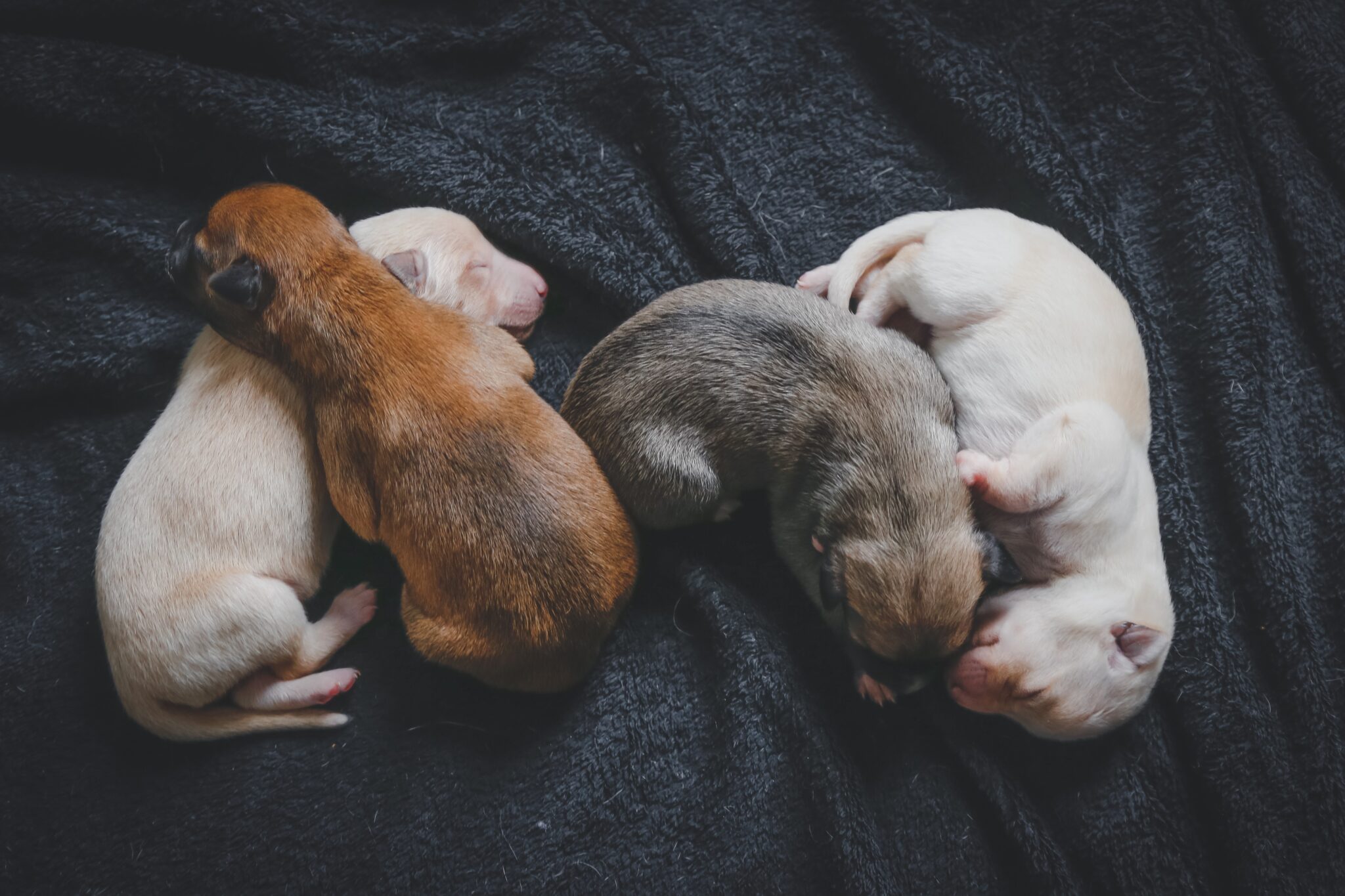Neutering: recommendations & things to consider
There is a lot of conflicting advice out there regarding neutering your pet, and it can be a bit of a minefield! Below are some recommendations and things we think are worth considering.
Male dogs
We recommend neutering most males at the age of 6-8 months old. Bigger dogs would ideally be older than a year as they are still growing, and waiting until they develop an adult body shape and a waist means they are less likely to look tubby!
You can choose between a surgical (irreversible) castration with a two-week rest period, or a chemical implant, which is reversible after 6 or 12 months. A chemical castration is a useful option if you are unsure about surgical castration as it is temporary and reversible. Initially, the six-month implant would be recommended, and then this can be repeated, or the 12-month implant can be used on an ongoing basis. The implant takes 5-6 weeks to reliably reduce fertility and should be used following the same age recommendations as a surgical castration. Your vet will be able to advise on the option that would be best suited to your dog.
Why we would recommend castration:
First and foremost, population control! Castration reduces the risk of unwanted pregnancies. This is something to bear in mind, especially if you have two pets of the opposite sex. Castration can reduce testosterone-driven behaviours, or typical ‘naughty’ behaviours, such as marking, humping and aggression. There are some health conditions, such as prostatic hyperplasia, that become more likely with ongoing testosterone exposure. Therefore the risk of developing these conditions are reduced with castration.
And when would we not recommend it?
Dogs that show fear aggression or are extremely timid benefit from a longer period of testosterone exposure. We therefore recommend leaving these dogs entire for a little bit longer. This is also recommended for larger dog breeds. We see a higher risk of joint issues and bone cancers in large dog breeds that have been castrated before they have reached maturity.

Did you know?
The testicles descend after birth and in some dogs only one testicle will descend into the external sack. When one is retained (either in the abdomen or the groin), this is called ‘cryptorchidism’. When this occurs, we recommend castration because the retained testicle is 13.6 times more likely to develop testicular cancer, compared to an external testicle.
Food for thought
Neutering increases the risk of obesity, especially in male dogs. Many food brands now recommend lower food intake for neutered dogs, or even offer a specific ‘neutered dog’ diet that has been formulated to prevent weight gain associated with neutering.
Female dogs
We recommend spaying a bitch three months after the first season. This is a surgical procedure which requires around two weeks downtime after surgery.
Why we recommend spaying:
As for the males, population control! Spaying prevents the need to separate dogs of the opposite sex that live together. During a season, bitches can become stressed, off their food and some can develop a phantom pregnancy where their body mistakenly simulates a pregnancy. Whilst not uncommon, this is stressful, emotionally and physically, and can be prevented by spaying. Unspayed bitches are at risk of developing a pyometra (infection of the womb) and this is highly likely to require surgery as it rapidly becomes a very dangerous condition if the infection is not treated. The risk increases with each season. Similarly, the risk of developing mammary tumours increases with each season that a bitch experiences.
And when would we not recommend it?
There can be an increased risk of bone cancers, joint disease and urinary incontinence if a bitch is spayed before reaching maturity, which is why we recommend spaying after the first season.
Help! My dog is too bouncy to rest for two weeks!
We can now spay bitches with a keyhole surgery. This requires a smaller incision than the traditional technique and therefore requires a shorter period of downtime. Our surgical veterinary partner, Pet People, has the ability to perform keyhole spays; if you would like to discuss this or anything else regarding neutering your dog, please get in touch: healthcare@wagworks.co.uk.